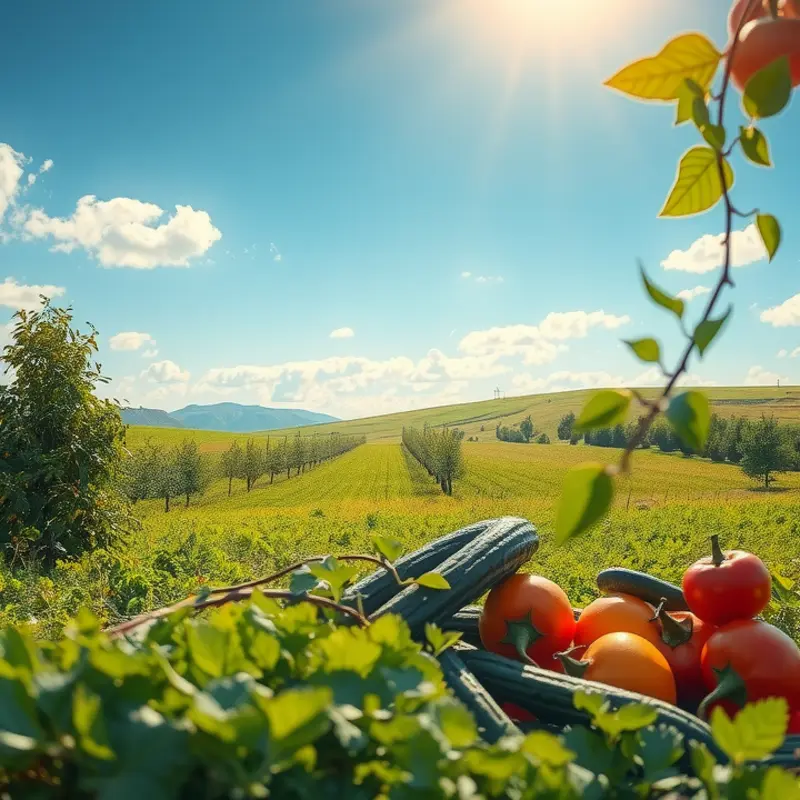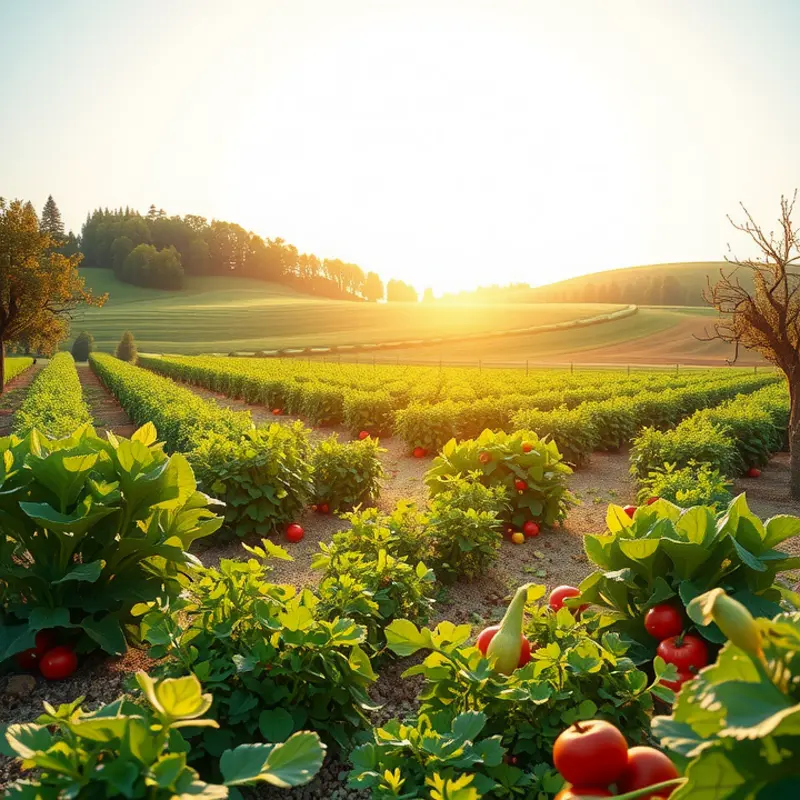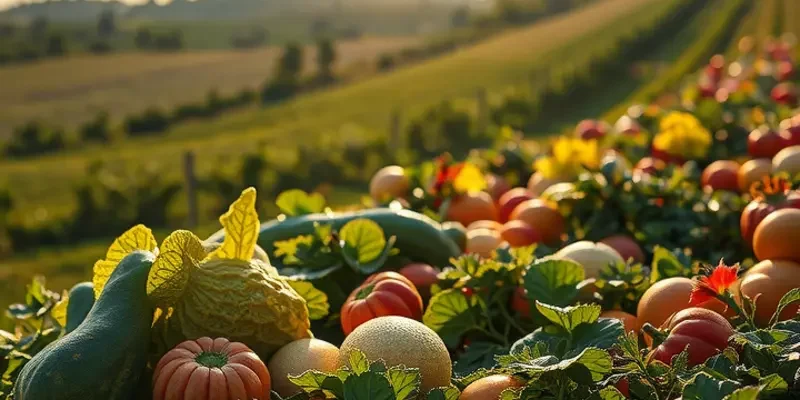Embracing the psychology of food anticipation can significantly enhance our emotional well-being and eating habits. As we learn to savor the experience before the meal, we create a deeper connection to our food and its impact on our body. Instead of rushing through meals, allowing ourselves to anticipate the flavors, textures, and nourishment can transform our approach to eating. This article delves into the science behind anticipation and provides practical techniques to foster mindful eating habits.
The Science Behind Anticipation: How Our Minds Prepare for Food

Anticipation is a powerful driver in how we experience food. When we expect a meal, our brains ignite a series of cognitive and chemical reactions that prepare us not just physically, but emotionally. This process involves neurotransmitters like dopamine, which play a crucial role in regulating pleasure and reward systems.
Dopamine is often associated with the gratification we feel from food. However, it is during the anticipation phase that dopamine levels begin to rise, setting the stage for the satisfaction to come. The mere thought of biting into a favorite dish or the smell of a meal cooking can trigger this increase, creating a positive feedback loop that enhances our emotional connection to the meal ahead.
The act of anticipating food allows our body to prepare for digestion. Sensory cues, such as sight and aroma, signal the brain to ready the gastrointestinal tract. This preparation can enhance the overall digestive process, making nutrient absorption more efficient. Additionally, the mind’s focus on an anticipated meal helps foster a mindful eating experience. When we allow ourselves the time to look forward to our next meal, we become more attuned to hunger cues and satiety signals.
Building anticipation can also significantly improve our emotional health by promoting gratitude and contentment. The process of waiting, and the curiosity about how a meal will taste or look, shifts our focus from immediate consumption to enjoying the present moment. This shift can cultivate mindful eating habits, allowing us to appreciate each bite rather than mindlessly consuming food.
Here are some practical exercises to enhance your anticipation skills and emotional ties to meals:
Create a Food Ritual: Consider setting aside time to plan and prepare meals. This could involve selecting recipes, gathering ingredients thoughtfully, and savoring the cooking process. Engaging with your food in this way encourages anticipation.
Visualization Techniques: Spend a moment visualizing your next meal, imagining the flavors, textures, and aromas. This can increase enjoyment and attune your senses to the details of the meal.
Mindful Pauses: Before each meal, take a deep breath and pause to appreciate it. Reflect on the journey of the ingredients from farm to plate. This practice can heighten your awareness of food sources, complementing sustainability efforts, such as implementing eco-smart storage in kitchens.
These exercises, while seemingly simple, can significantly affect how we perceive and enjoy food. By integrating anticipation into our dining experiences, we cultivate a more profound connection with our meals. This holistic approach offers a pathway to not only improve our eating habits but to enhance our overall well-being.
Building Mindful Eating Habits Through Anticipation

Anticipation is a powerful tool in transforming how we approach food and eating habits. One effective strategy to cultivate anticipation is through mindful cooking and establishing rituals around meals. These practices do not just change the way we eat; they alter our emotional connection to the food, enhancing satisfaction and well-being.
Mindful cooking begins at the very moment you start preparing a meal. Engage with the entire cooking process, from selecting ingredients to washing, chopping, and cooking them. Notice the textures, colors, and aromas releasing from the food, and allow yourself to indulge in the sensory experience. This not only enriches the anticipation for the meal but also quiets the mind, focusing energy on the care and precision of the culinary creation.
Creating rituals around meals is another technique that helps build powerful anticipation. A simple ritual could involve setting the table nicely, playing calming music, or lighting a candle. These rituals do not have to be elaborate but should be consistent. They signal your mind and body that it’s time to transition from life’s bustle into a period of peace and enjoyment. This approach helps reduce the pressure that often accompanies food consumption, encouraging a slower, more contemplative method of eating.
To foster a deeper connection with food, consider integrating gratitude or reflection before meals. Taking a moment to appreciate the journey of each ingredient from farm to table can enhance your overall dining experience. These practices set a compassionate tone, allowing you to savor each bite and understand the meal’s nutritional and emotional contribution.
For a truly immersive experience, consider involving family or friends in your cooking process. Planning and preparing meals together can deepen anticipation, turning an everyday task into a collaborative and bonding experience. It also provides an opportunity to share knowledge about food and cooking, enhancing appreciation for the meal.
Another suggestion is to find joy in exploring new cuisines. Preparing dishes from different cultures broadens taste horizons and introduces novel flavors that further build anticipation. Exploring global culinary traditions could start with easy plant-based eating that inspires creativity and mindfulness in the kitchen.
Mindful anticipation doesn’t stop at meal preparation. Alleviate pressure and anxiety around eating by serving controlled portions and focusing on quality over quantity. Embrace a “less is more” philosophy, encouraging a balanced approach that is both satisfying and emotionally fulfilling.
These strategies guide us to a more conscious and connected approach to nourishment. By emphasizing anticipation, we internalize food as a source of joy and health, cultivating satisfaction and enhancing our emotional state.
Final words
Integrating the psychology of food anticipation into your eating routine can profoundly influence your emotional health and relationship with food. By focusing on the journey leading up to a meal, you cultivate appreciation and mindfulness that can transform the act of eating into a more enriching experience. It’s about more than just sustenance; it’s about creating a moment of joy and connection. Practicing methods to enhance anticipation, from mindful cooking to savoring each bite, opens doors to healthier choices and emotional well-being. Embrace this journey, and relish the delicious moments that await.







